Problems with urination can occur in anyone at any age, they are quite common in both sexes. The reason for this phenomenon may serve as a physiological (natural) factors, and diseases that require immediate treatment.
Frequent urination, often for a long time remains without the necessary diagnosis, especially if other complaints exist. But do not forget that frequent urination is not always a harmless symptom, because it can hide a serious illness.
Most patients go to the doctor quite late, often when the desire to urinate becomes very frequent, or to subscribe the clinical picture of any other dysuric disorders (pain, cramps, discomfort, etc.).
It is especially important to monitor the frequency of emptying of the bladder during the day not only in adults but also in children. This should take into account the fact that in the norm the kids visit the toilet more often than older people.
It should be noted that the period when it quickens the desire to go to the toilet (day or night). When it comes to frequent urination at night, in medicine it is called by the term “nocturia” (more on this can be found in this article).
Normal levels of urination
Before proceeding to the question of what constitutes frequent urination and what are its main causes, it is necessary to understand what the frequency of emptying the bladder is considered a normal variant.

For people of different age groups, the number of trips to the toilet “small” varies. It is influenced by such factors as time of day, the amount of fluid you drink during the day, diet, level of physical activity, etc.
In young children the desire to urinate appears much more frequently than adolescents and older people, which is an absolute norm
Average normal urine is presented in the table below:
| Age | The amount of urination per day | The volume of urine per day |
| Baby from birth to 28 days | 20-25 | 150-450 ml |
| Child from 1 month to a year | 8-10 | 300-800 ml |
| Child from 1 year to 5 years | 5-8 | 500-1000 ml |
| Child from 5 to 10 years | 6-7 | 650-1200 ml |
| Children from 10 to 14 years | 5-6 | 1000-1500 ml |
| Adult men and women | 4-8 | 800-1600 ml |
The main reasons for frequent urination
Physiological causes
Not always frequent urination indicate the beginning of a pathological process, sometimes they are related to the impact of one or more of the following factors:
- a large amount of fluid during the day (more than 3 liters of water), which includes fruit drinks, fruit drinks, coffee, alcohol, carbonated drinks, etc. (thus there is frequent and profuse urination);
- eating foods that have a strong diuretic effect (e.g., cucumber, watermelon, melon, cranberries, etc.);
- the finding of the body in a state of stress or strong emotion (nerves occurs oxygen starvation of cells throughout the body, thus there is frequent urination without pain and other unpleasant symptoms);
- a cold or common frigorism of an organism, against which there is centralization of blood circulation and improves blood flow in the kidney that stimulates the act of urination (most often seen in young girls residing in the cold);
- the period of pregnancy (we are talking about early and late gestation, when there is the most intensive growth of the uterus and its pressure on the bladder).

The melon has an excellent diuretic effect, so its use in food always becomes the cause of frequent and copious evacuation of the bladder
If frequent painless urination triggered by one of these factors, then, after their removal, the health of the patient is normalized, thus no special treatment is required.
Pathological causes
Diseases of the organs of the urinary system
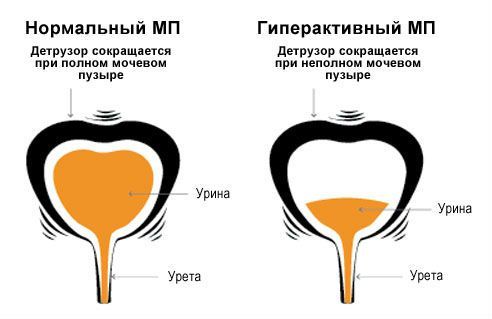
Among the main causes of frequent painful urination you need to identify the following pathological processes:
- Inflammation in the bladder (cystitis). It is characterized by bright clinic dizuriceskih disorders (often diagnosed in women who lead an active sexual life).
- The defeat of the walls of the urethra (urethritis). The disease is associated with introduction of infectious agents into the tissue of the urethra, most often has a connection with sexually transmitted (gonorrhoea, chlamydia, thrush etc.).
- Inflammation of the parenchyma of one or both kidneys (acute or chronic form of pyelonephritis). In this disease the patient is worried about frequent urination and lower back pain on the affected side.
- Urolithiasis, namely, the promotion of stone formed in the urinary tract, which causes a bout of severe pain (renal colic).
- The syndrome of hyperactive urinary bladder. The pathological process is characterized by increased excitability of the body to which far too many signals from the cerebral cortex.
- The weakness of the muscular-ligamentous apparatus of the pelvic floor or the bladder wall, which leads to a constant desire to go to the toilet and urinary incontinence.
- Cancer processes in the bladder benign or malignant origin.
Diseases of the reproductive system
Direct effect on the bladder may have a uterus, especially when it is a negative offset from the anatomical bed.
This is observed in the following processes:
- the growth of myomas (tumor node), in which the woman has a stomach ache, disturbed menstrual cycle, you receive periodic bleeding, etc.;
- uterine prolapse on the background of congenital or acquired weakness of the ligamentous apparatus.
Diseases of the cardiovascular system
Hypertension (high blood pressure), there is often increased urge to potty, especially against the background of crisis of adrenal in nature.
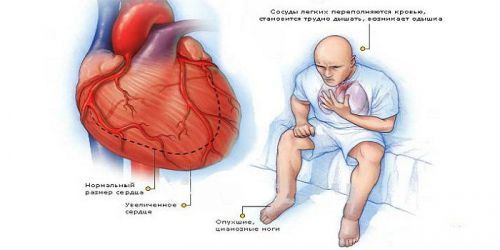
Frequent desire to go to the toilet is observed in patients suffering from different degrees of heart failure, especially receiving diuretic therapy at high doses
Disease of endocrine origin
Frequent urination in combination with such symptoms as dry mouth, is the hallmark of diabetes or diabetes insipidus, which have their basis in dysfunction of the endocrine system and require immediate treatment.
Medications
Quite often the use of medication can lead to such an effect, as frequent trips to the bathroom (especially if it happens at night). The patient in this case may not hurt, but frequent urination is the only unpleasant symptom.
The main drugs that can influence the frequency of emptying the bladder, the following: diuretic, anti-inflammatory, antipyretics, antihypertensives, and others.
Other reasons
Among noninfectious causes of polyuria need to allocate a vascular dystonia (VSD) is a condition in which interferes with the normal operation of the autonomic nervous system that may directly influence the filtration ability of glomerular apparatus of kidneys.
Predisposing factors
The main factors that can cause frequent emptying of the bladder:
- congenital or acquired deformities of the genitourinary system;
- sharp set or reduction of body weight;
- hormonal disorders, menopause;
- the presence of connective tissue diseases;
- the frequent recurrence of urinary tract infections;
- operations gynaecological;
- heavy labor history and others.
The symptoms that need to pay special attention
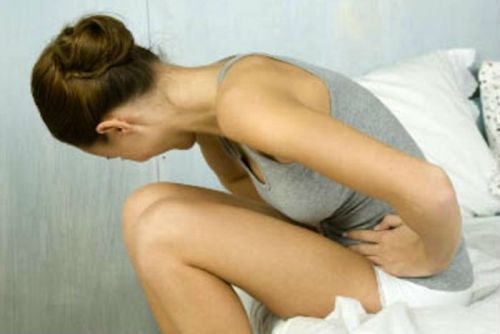
It is impossible to delay visiting the doctor if, in addition to frequent urination, there is one of the following symptoms:
- suddenly the body temperature rises, there is apathy, malaise, and other signs of intoxication syndrome;
- urination frequent and painful, with sore kidneys, the lumbar region or lower part of the abdomen;
- increased blood pressure, a headache diffuse nature, etc.;
- from the lumen of the urethra there is discharge of different character (mucous, purulent, bloody, etc.);
- changing the color and natural smell of urine, it becomes cloudy or darker;
- urine is secreted in small portions, while the patient has to make an effort to empty the bladder.
Often frequent urination is accompanied by severe pain syndrome
A diagnostic algorithm
Before proceeding to laboratory and instrumental diagnostics, the doctor performs a thorough examination of the patient and collects the history of the disease.
Women mandatory conduct bimanual examination on the gynecological chair, and men need to do a digital rectal examination.
Laboratory and instrumental diagnostics includes the following methods of examination:
- General analysis of blood and urine;
- biochemical analysis of blood and urine;
- urine analysis according to Nechyporenko, test of General;
- HCG (if you suspect pregnancy in women of reproductive age);
- the glycemic profile, glucose tolerance test;
- x-ray diagnostics (panoramic image, excretory urography, etc.);
- Ultrasound of the kidneys, bladder and pelvic organs;
- additional research on the testimony, their choice depends on what is the cause of frequent urination (cystoscopy, CT, MRI and others).
Each patient should keep a diary of urinary continence
Tactics of management of patients with frequent urination
To get rid of such unpleasant and sometimes exhausting symptom is frequent emptying of the bladder, it is necessary to determine the exact cause of its occurrence.
Treatment frequent urination requires etiological, pathogenetic and symptomatic approach. The choice of therapies is determined by a medical doctor, so do not delay your visit to him.
If the cause of frequent urination be psychological causes, then their elimination will relieve the patient from unpleasant symptoms.
We are talking about the following events:
- the restoration of the water regime, the exclusion from the diet of alcohol, strong carbonated drinks, spices, herbs, watermelon, etc.;
- an exception stressful and exciting situations;
- during pregnancy women are recommended to take the knee-elbow position, which helps to reduce the load on the bladder.
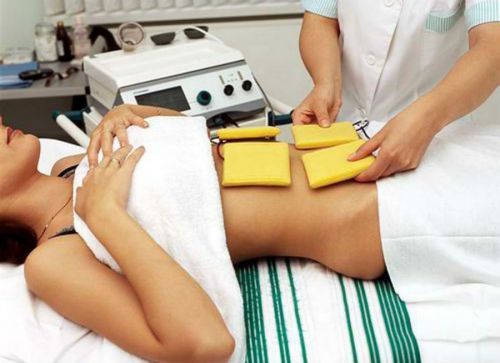
Etiological therapy implies the impact on the root cause of the disease, which makes it possible to cure an unpleasant symptom or as much as possible to reduce it.
We are talking about the appointment of antibacterial drugs, hormonal drugs, antidiabetic tablets, and others.
Pathogenetic therapy is the elimination of different stages of pathogenesis of illness (e.g. surgery in malformations of the urinary bladder).
Symptomatic treatment includes the assignment of such groups of drugs as analgesics, anti-inflammatory, antispasmodic, psychoactive drugs and others.
Widely appointed by physiotherapy treatments, the choice of which is determined by primary pathology (UHF, electrical stimulation, and others)
Prevention
Measures for prevention are as follows:
- timely diagnosis and treatment of diseases (genitourinary, endocrine, cardiovascular, and others);
- the maintenance of adequate drinking regime;
- conduct of gymnastic exercises to strengthen the pelvic floor muscles (with their weaknesses);
- maximum avoidance of overcooling, stays in the draft;
- activities for the General hardening of the body, maintaining healthy lifestyle, etc.
You must understand that any breach in the body require immediate referral to a specialist, even if the General health remains satisfactory.
How to treat frequent urination only knows the doctor, because only he can determine the exact cause of what is happening and to appoint adequate therapy.

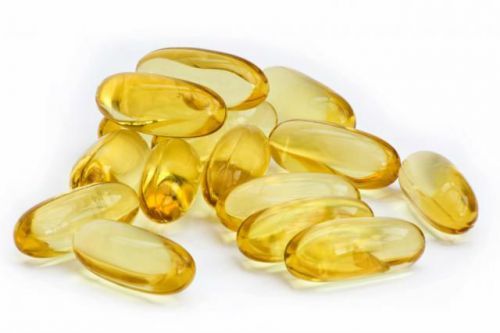
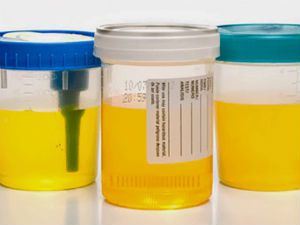
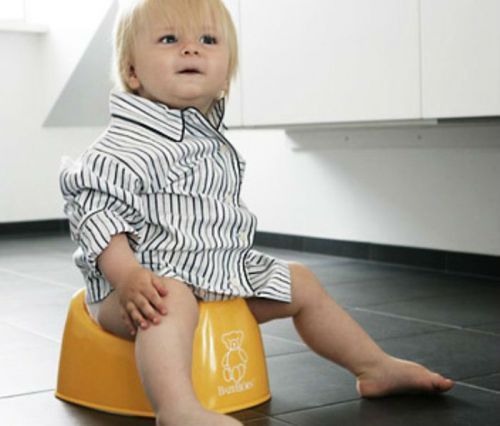
Have you ever considered about including a little bit more than just your articles? I mean, what you say is important and all. However think of if you added some great photos or videos to give your posts more, “pop”! Your content is excellent but with images and videos, this blog could definitely be one of the best in its niche. Excellent blog!